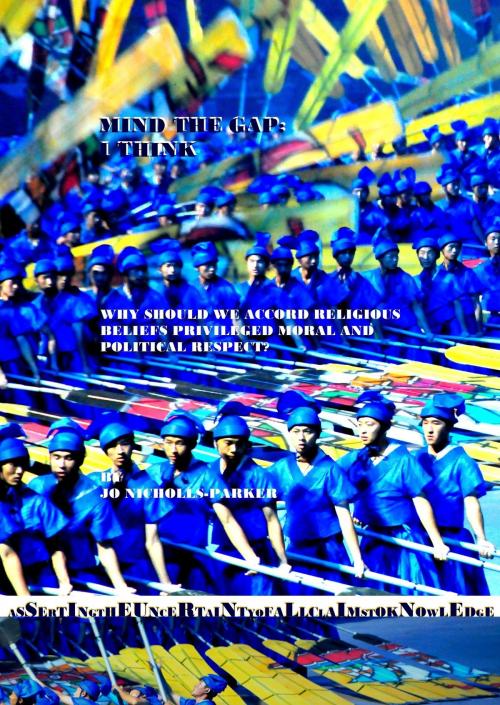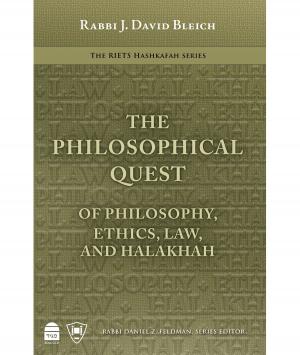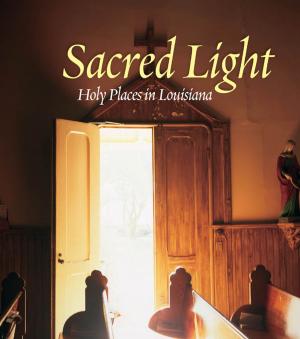| Author: | Jo Nicholls-Parker | ISBN: | 9781310649325 |
| Publisher: | Jo Nicholls-Parker | Publication: | July 1, 2015 |
| Imprint: | Smashwords Edition | Language: | English |
| Author: | Jo Nicholls-Parker |
| ISBN: | 9781310649325 |
| Publisher: | Jo Nicholls-Parker |
| Publication: | July 1, 2015 |
| Imprint: | Smashwords Edition |
| Language: | English |
Religious beliefs exist because the religious authority has witnessed the value they give individuals in society in general. Nevertheless the ongoing purpose of 'religious beliefs' is not straight forward. On one level it is because 'religious beliefs' historically acquire moral and political atonements, and as these are being forged, that today the religious accordances that have been ascribed are the cause of the need for redress. On another level past 'religious beliefs' became judge and jury, or were becoming the subject of prejudicial scrutiny to suit ambitious society members, but today demands for political transparency has by and large transformed those 'religious beliefs' precedents. Today the moral worth of 'religious beliefs' are under question. What has come to light is that without the standardization of the 'rationality of human choice' seldom is the understanding of human choice fundamental enough to explain such a historically integrated platform as religiosity. This study unfolds where evidence of the compatibility of all known laws, interreligious and constitutional can be gathered, wherein isolationism is seen as the surest means to secure an identity and that by revealing the definition of pluralistic parallelisms in this thesis the mechanism to administer for 'order over doctrine' and 'doctrinal order' mandates in contemporary times can be appropriated. The formation of an identity is complex, but certainly an identity can be fashioned by a 'foundationalist comprehension of doctrines' and, similarly, an abstract religious traditions comprehension so that the challenge, that is securing an unchangeable identity factor and in the name of a particular religion, is achievable. The constitutional authority might sport an interest in securing an identity too, but, in actuality, the interreligious contribution is a proven worthiness of 'pervasive attitudes,' which is accompanied by the elucidation of effective posited purposefulness perspectives and from within the core multidisciplinary plight of society. Today the moral worth of 'religious beliefs' under question are due to the increasing tendency toward extremist isolationism. Legal or constitutional responses have limited success. 'Religious beliefs' cater for a greater breadth of complex religious, non-religious, and agnostic 'believers' than the constitutional order. Religiosity, this is to say, has delivered stable pervasive identities and for this deserves recognition.
Religious beliefs exist because the religious authority has witnessed the value they give individuals in society in general. Nevertheless the ongoing purpose of 'religious beliefs' is not straight forward. On one level it is because 'religious beliefs' historically acquire moral and political atonements, and as these are being forged, that today the religious accordances that have been ascribed are the cause of the need for redress. On another level past 'religious beliefs' became judge and jury, or were becoming the subject of prejudicial scrutiny to suit ambitious society members, but today demands for political transparency has by and large transformed those 'religious beliefs' precedents. Today the moral worth of 'religious beliefs' are under question. What has come to light is that without the standardization of the 'rationality of human choice' seldom is the understanding of human choice fundamental enough to explain such a historically integrated platform as religiosity. This study unfolds where evidence of the compatibility of all known laws, interreligious and constitutional can be gathered, wherein isolationism is seen as the surest means to secure an identity and that by revealing the definition of pluralistic parallelisms in this thesis the mechanism to administer for 'order over doctrine' and 'doctrinal order' mandates in contemporary times can be appropriated. The formation of an identity is complex, but certainly an identity can be fashioned by a 'foundationalist comprehension of doctrines' and, similarly, an abstract religious traditions comprehension so that the challenge, that is securing an unchangeable identity factor and in the name of a particular religion, is achievable. The constitutional authority might sport an interest in securing an identity too, but, in actuality, the interreligious contribution is a proven worthiness of 'pervasive attitudes,' which is accompanied by the elucidation of effective posited purposefulness perspectives and from within the core multidisciplinary plight of society. Today the moral worth of 'religious beliefs' under question are due to the increasing tendency toward extremist isolationism. Legal or constitutional responses have limited success. 'Religious beliefs' cater for a greater breadth of complex religious, non-religious, and agnostic 'believers' than the constitutional order. Religiosity, this is to say, has delivered stable pervasive identities and for this deserves recognition.















